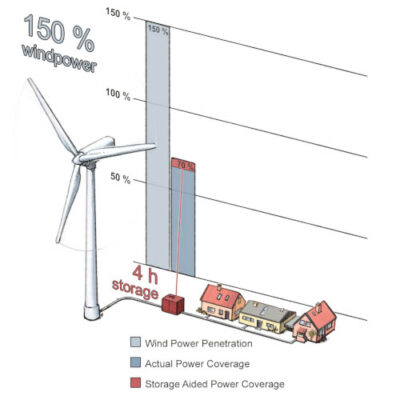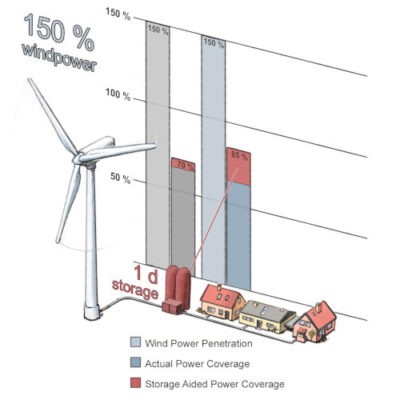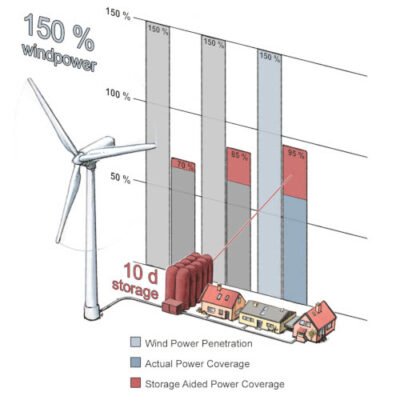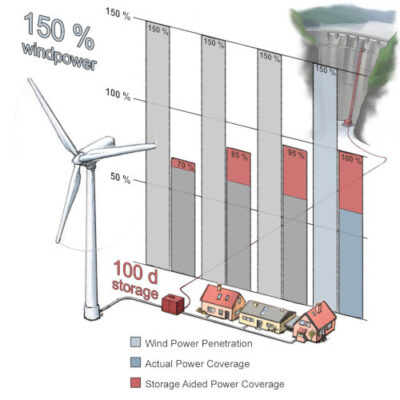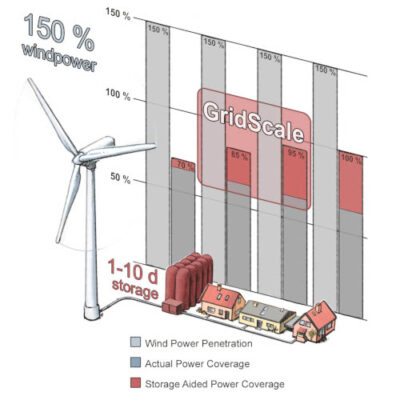
Solving the problem of variability in wind and solar
As demand for wind and solar power grows exponentially in the coming years, so too will the demand for energy storage.
The energy output from non-controllable renewables is generally poorly fitted to the electricity load curve of modern society and consequently, the variability of wind power and solar PV will set an upper limit to the penetration of renewable energy sources into the electrical system.
The problem cannot be solved by higher renewable penetration or load management, and any true integration of renewable energy will depend on the availability of flexible and cost-efficient energy storage.
Stiesdal Storage is motivated by the need for large-scale integration of renewables in the context of the global green transition. The Company has focused its efforts on developing the GridScale energy storage system as a high impact solution for the mid-term storage range.
The wide array of available electrical energy storage types and systems serve different needs in the energy infrastructure, meeting demands from very short duration cycles of charging and discharging to seasonal storage:
Short-term
For grid-support. Discharge duration up to 4 hours.
Mid-term
For integration of renewables. Discharge duration from 4 hours to 10 days.
Long-term
For season-to-season storage. Discharge duration months or years.
Amplifying renewable energy
At present-day solar PV capacity factor levels of ~25%, a GridScale energy storage system will increase the transmitted capacity factor towards 100% through 12-18 hours day-to-day smoothing.
For wind power, GridScale will provide a very significant increase in actual coverage from wind in relation to wind power penetration.
Wind power penetration is the fraction of energy produced by wind compared with the total energy generation.
Without efficient energy storage, increasing wind power penetration in the energy infrastructure will not translate to a similar increase in actual wind power coverage as illustrated below.
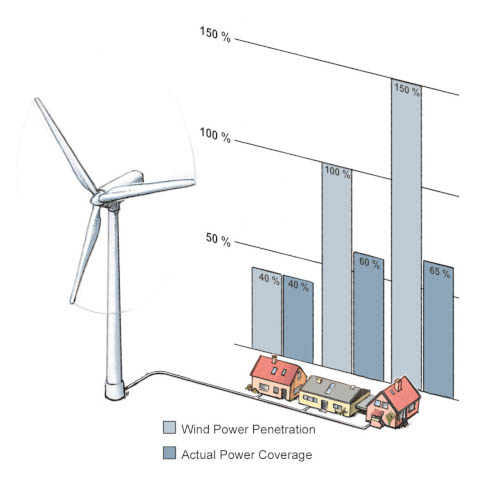
In the following scenarios wind penetration is set to 150% which is desirable in a green transition perspective. Introducing energy storage capacity ensures higher integration of wind power, effectively changing the picture.
With its combination of a low-cost storage medium and a modular, build-anywhere system based on industrialized manufacturing, the GridScale Battery is uniguely designed to meet the demands of renewable energy integration and energy security.
